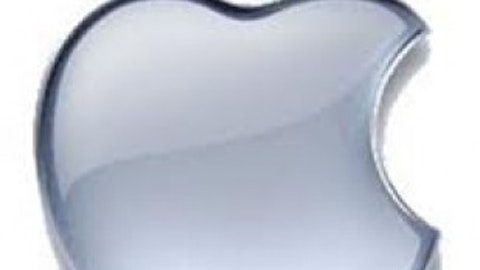What if you could throw a yard sale to get rid of your old digital content? Songs, e-books, games, movies — all that stuff you downloaded forever ago but don’t really use anymore?
Right now, it’s just not practical, or legal, to sell the digital content we’ve amassed over the years. The terms we agree to when we download the stuff tell us that we’re technically renting it anyway. And even if we could legally sell our used songs or books, there’s no good way to actually transfer ownership to a willing buyer.
But Amazon.com, Inc. (NASDAQ:AMZN) and Apple Inc. (NASDAQ:AAPL) are busy trying to change all that.

Amazon.com, Inc. (NASDAQ:AMZN) received a patent in January to set up a “secondary market for digital objects.” According to the filing, the company could create an electronic marketplace where users have the option to give up their rights to the content they’ve purchased, and to transfer those rights to someone else. In other words, they could sell used digital content just like they can hawk their stuff in the physical marketplace.
And Apple Inc. (NASDAQ:AAPL) just last week received a patent along those same lines. The Mac maker’s filing imagines a digital bazaar where users can sell previously owned stuff, with a portion of the proceeds going to the creator or publisher. A cut could also go to the original seller, of course, which in this case would be Apple Inc. (NASDAQ:AAPL).
Almost like new
But I’m sure both companies see the potential for profits here. After all, the market for used physical goods is massive. eBay Inc (NASDAQ:EBAY) built its gigantic marketplace around the sale of secondhand goods. And while that’s less of a focus for the company now, it still lists more than 350 million items, many of which are slightly used or refurbished. Amazon.com, Inc. (NASDAQ:AMZN) has its own thriving business for used products offered by third-party sellers. People value the freedom to trade in their wares and grab a portion of the purchase price back after they’re done with them.
That’s just as true for previously owned video games. GameStop Corp. (NYSE:GME) makes a killing on used gaming software and hardware. Those products accounted for 18% of the retailer’s revenue last quarter, but a whopping 39% of its gross profit.
And we know that gamers cherish the freedom to trade in those used games. With rumors swirling that Microsoft Corporation (NASDAQ:MSFT) and Sony Corporation (ADR) (NYSE:SNE) have been thinking about banning used games from their next-generation consoles, GameStop had a warning for these companies: Gamers will not be pleased. “We know the desire to purchase a next-generation console would be significantly diminished if new consoles were to prohibit playing pre-owned games, limit portability, or not play new physical games,” a GameStop spokesman told Bloomberg news.
It’s all about the system
And that gets to the main reason Amazon.com, Inc. (NASDAQ:AMZN) and Apple need a digital marketplace: More consumer freedom is essential to their online and offline strategies. Both companies have thriving ecosystems that lean heavily on selling their own hardware. Spurred along by the explosion in sales of iDevices, Apple Inc. (NASDAQ:AAPL) just booked its 25 billionth song download last month. iTunes generated $7.5 billion in sales just last year.
Amazon.com, Inc. (NASDAQ:AMZN) has been flooding the marketplace with its own digital stuff, too. Kindle e-reader sales regularly top the company’s best-seller product lists. And e-book sales passed those of print books almost two years ago. At the time, CEO Jeff Bezos said, “We had high hopes that this would happen eventually, but we never imagined it would happen this quickly.”
Foolish bottom line
Apple Inc. (NASDAQ:AAPL) and Amazon.com, Inc. (NASDAQ:AMZN) might not have imagined how fast we consumers would embrace the idea of shelling out for digital content. But now that the trend is here to stay, it makes sense to bring some order and flexibility to the market for digital stuff. The companies’ massive business success over the years means that many of their customers have built up big libraries of downloads that are burdened by strict content-management rules.
To give their users more freedom in dealing with all the content they have been selling us — and to keep the sales momentum going — Amazon and Apple Inc. (NASDAQ:AAPL) have every reason to figure out some answers to the tricky issues of digital content management. We need a marketplace for secondhand digital goods. The sooner, the better.
The article Coming Soon: A Market for Used E-Books originally appeared on Fool.com and is written by Demitrios Kalogeropoulos.
Fool contributor Demitrios Kalogeropoulos owns shares of Apple. The Motley Fool recommends Amazon.com, Apple, and eBay and owns shares of Amazon.com, Apple, eBay, GameStop, and Microsoft.
Copyright © 1995 – 2013 The Motley Fool, LLC. All rights reserved. The Motley Fool has a disclosure policy.




